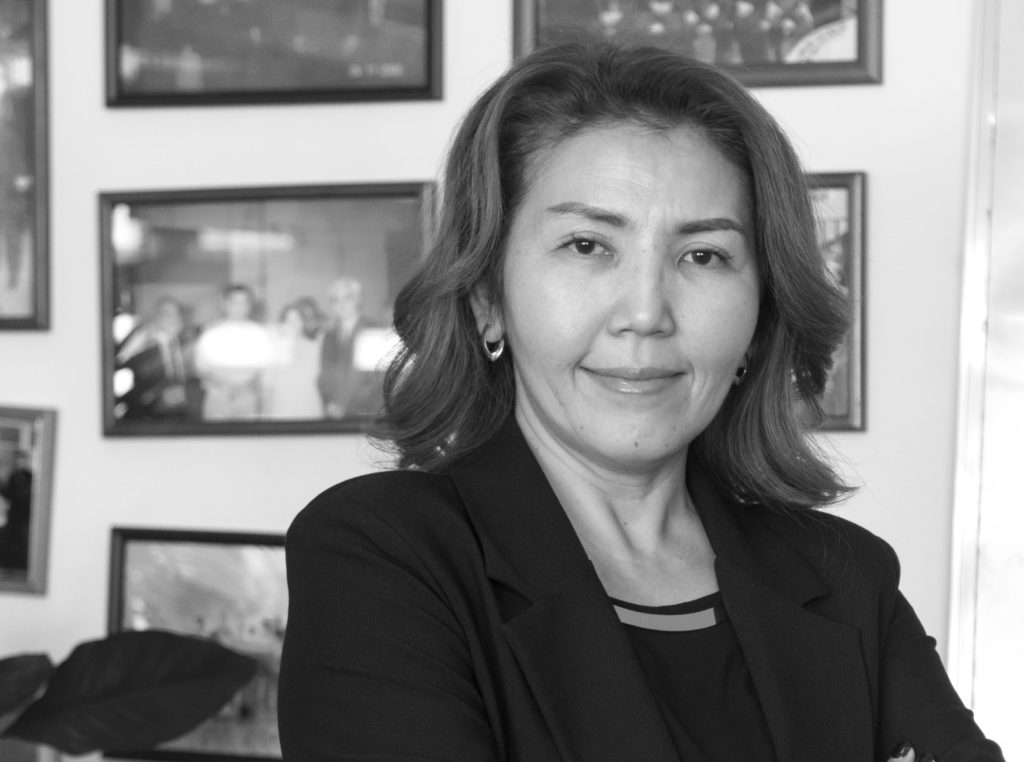ECONOMIKA: In November last year, President Sadyr Japarov issued a decree aimed at stimulating the stock market and exchange activities. Specifically, it aims to strengthen the national infrastructure of the stock market (depository, KASE) to integrate it into the international financial market. In your opinion, can we compete with other financial centers, at least with MFC Astana?
M. ASKARBEKOVA: Our market has long needed this decree. As you may know, the first such decree was signed back in 1999, but many years have passed, and our market has remained on the sidelines, forgotten, and underdeveloped. This decree was long overdue, and we were glad it finally arrived. It states that the stock market of Kyrgyzstan should be developed, and to do that, we need a significant number of domestic investors.
Before we attract foreign investors, our domestic market must be prepared. Foreign investors will arrive when there is proper corporate governance, transparent financial and non-financial reporting, effective investor rights protection, compliance with all standards, and digitization. If domestic investors support local enterprises and there is high demand for local companies within the domestic market, it sends a strong signal to foreign investors.
The decree should help, but only if everything is executed as written. For instance, the decree emphasizes the digitization of all services. Currently, it’s only partially functional. We need to expand the range of investment instruments. We talk about attracting investors, but what tools can we offer them? There are very few. Mainly, we have corporate bonds and stocks. Other instruments are scarce in the stock market. There are GKO, but that’s about it.
The decree states that it’s necessary to transfer government securities to the stock exchange, trade precious metals, develop the commodity and raw materials sector, and expand the range of financial instruments. To boost investment activity, investors need to be provided with diverse investment options. This will encourage domestic companies to believe in their local market. They also have their concerns. I work with them, suggest they enter the stock market and issue bonds, and one common question is, «will the investor pay us back?» That is, the issuer must also be confident that domestic investors are active and that raising investments and attracting financing in the domestic market is realistic.
When we have active domestic investors, our local companies will believe that it’s possible to raise financing and will start participating in the stock market.
Entering the stock market allows a company to get in shape, package itself properly, establish corporate governance, maintain transparent reporting, disclose significant facts, risks, and make accurate forecasts. We, meaning domestic investors and issuers, need to learn all this. And if we teach them to attract investments in the domestic stock market, they will gain access to capital, and then institutional investors will begin investing too.
Your financial company organizes bond issuances for Kyrgyz companies. Who are the primary investors in these bonds currently?
90% of investors are individuals, while globally, most of these issuances are purchased by institutional investors such as banks, insurance companies, and investment funds. In our country, on the other hand, there are very few institutional investors, and their investments are sporadic. Today, our main investor base consists of individuals, but we aspire to be like the rest of the world, where institutional investors actively participate in the stock market.
What is preventing more companies from listing on the stock market?
Mental unpreparedness. Companies are used to operating within their own circles, with LLCs—which, according to our laws, have the right to issue bonds—usually having a small group of participants who are not accustomed to disclosing information about themselves. It takes time for a leader and their team to become ready to enter the market.
We provide initial advice and persuade companies that entering the market is both possible and necessary if they want to progress to a new stage in their development. They may be interested, but stepping out of their comfort zone is difficult. They are used to relying on bank loans and maintaining relationships with their regular banks. Everyone is familiar and comfortable with one another, and the process seems fast.
Entering the stock market, on the other hand, requires complete transparency of documents and reports. Material and non-material news, information about management, shareholders—all of this must be made public. After all, potential investors need access to such information to make informed decisions about investing in a company. The fear of transparency and openness is one of the factors holding them back.
If a company has already mentally matured, and the owners have prepared themselves to enter the market, it often turns out that these companies are from the real sector (manufacturing, trading companies) and are not technically ready. According to the law, they need to submit an audit report for the last three years, comply with capital requirements, etc. This means they must organize their accounting documents, financial statements, and demonstrate the company’s profitability. Some companies don’t meet these requirements.
Issuers come from various sectors, and if they are from the financial sector (microfinance companies, banks), most of them are prepared. They have corporate governance in place, an audit report, transparency, etc. All they need to do is compile everything and develop a strategy for entering the stock market. However, if it’s a company from the real sector of the economy, they often face problems. Of course, all of this can be overcome—it’s just a matter of time. Due to the mental barrier, companies take a long time to prepare for transparency.
How did 2022 end for your financial company? What was the highlight of its business?
We assisted several domestic companies in entering the market, including Textile Trans, UBS Transit, and Stroydom.KG. One of the significant events was the issuance of gender bonds by the Bank of Asia. We reached an agreement with one of the banks in Kyrgyzstan, which plans to issue «green» bonds. The geopolitical situation also impacted our market. Due to fluctuations in the dollar exchange rate, investors took their time deciding in which currency to invest. Nevertheless, we secured some excellent projects.
Interviewed by Saadat Asanova





